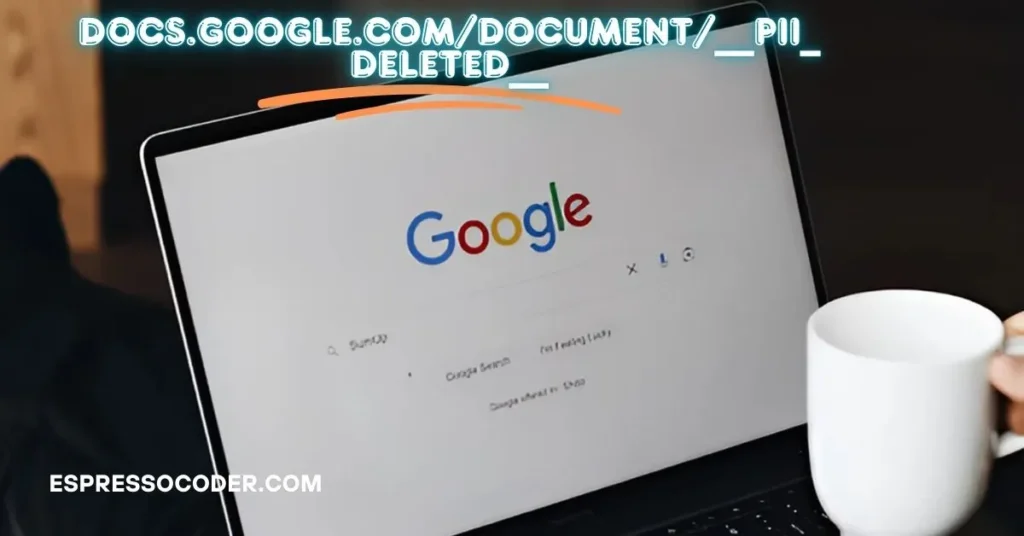Introduction to the concept of data privacy and security
In today’s digital landscape, our personal information is more vulnerable than ever. With just a few clicks, we share countless details about ourselves—our names, addresses, phone numbers, and even our purchasing habits. But have you ever stopped to think about where this data goes? As we navigate the vast online world, understanding data privacy and security becomes crucial. The stakes are high when it comes to protecting your personally identifiable information (PII). Let’s explore why safeguarding this sensitive data isn’t just important—it’s essential for maintaining your identity and peace of mind in an increasingly connected society.
The importance of protecting personal information online
In today’s digital landscape, protecting personal information is more crucial than ever. Every click and interaction online leaves a trace, creating a digital footprint that can expose sensitive data.
Cybercriminals are constantly seeking ways to exploit this information. A single breach can lead to identity theft or financial loss, impacting individuals for years. This threat amplifies when we consider how much we share on social media platforms without second thoughts.
Moreover, many organizations collect vast amounts of data for marketing purposes. Understanding what they do with your information is essential. Transparency about data handling practices allows users to make informed choices.
Taking proactive steps toward securing your personal details fosters trust in the digital world. Investing time in understanding privacy settings and utilizing strong passwords contributes significantly to safeguarding one’s identity online.
ttps://docs.google.com/document/__pii_deleted__
How and why pii (personally identifiable information) is collected
Personally identifiable information (PII) is collected for various reasons, primarily to enhance user experience. Websites and apps gather data like names, email addresses, and phone numbers to tailor services and offers.
Companies often use PII for targeted marketing. By understanding consumer behavior through this data, businesses can deliver personalized content that resonates with their audience.
Another reason for collecting PII lies in regulatory compliance. Organizations need certain information to adhere to laws and regulations regarding identity verification or financial transactions.
Additionally, data analytics plays a crucial role. Businesses analyze trends based on collected PII to improve products and services or even develop new ones altogether.
However, the collection of such sensitive information raises important questions about privacy rights and security measures in place to protect it from unauthorized access.
The risks of having pii compromised or deleted
When personally identifiable information (PII) is compromised, the consequences can be severe. Identity theft remains one of the most significant threats individuals face today. Fraudsters can use stolen data to open credit accounts in your name or conduct transactions without your knowledge.
Additionally, having your PII deleted unexpectedly can lead to a loss of access to essential services and documents. Imagine not being able to retrieve medical records or financial statements because critical data has vanished.
Companies that mishandle PII also risk reputational damage and hefty fines under regulations like GDPR or CCPA. This creates a ripple effect impacting customer trust and loyalty.
Emotional distress often accompanies such breaches. The feeling of vulnerability haunts victims long after the incident occurs, causing anxiety about future interactions online.
Steps to take if your pii has been deleted or stolen
If you suspect that your personally identifiable information (PII) has been stolen or deleted, act quickly. The first step is to monitor your financial accounts for any unauthorized activity. Check bank statements and credit card transactions regularly.
Next, place a fraud alert on your credit report. This alerts lenders to take extra steps before opening new accounts in your name. You can do this by contacting one of the three major credit bureaus.
Consider freezing your credit as well; this prevents anyone from accessing it without your consent.
Report the incident to local authorities if necessary, especially in cases of identity theft.
Keep detailed records of all communications related to the theft or deletion. Document conversations with banks or law enforcement for future reference as you work through the recovery process.
Preventative measures for protecting pii
To safeguard your personally identifiable information (PII), start with strong passwords. Use a mix of letters, numbers, and symbols. Avoid easily guessable combinations like birthdays or names.
Enable two-factor authentication wherever possible. This adds an extra layer of security by requiring not just a password but also something you have—like your phone.
Be cautious about sharing personal data online. Always think twice before posting anything that could lead to identity theft or fraud.
Regularly update software and applications on all devices. These updates often contain important security patches to protect against vulnerabilities.
Consider using a Virtual Private Network (VPN) when accessing public Wi-Fi networks. This encrypts your internet connection and keeps your data private from prying eyes.
Monitor your financial accounts regularly for any unusual activity. Early detection can prevent more significant issues down the road.
Conclusion: Why it’s crucial to be aware of pii and how to protect it in today’s digital age
Being aware of personally identifiable information (PII) is more important than ever in today’s digital landscape. As we navigate a world increasingly driven by technology, our personal data becomes vulnerable to misuse and theft. Understanding what PII means and recognizing its significance empowers individuals to take control of their online presence.
The risks associated with compromised or deleted PII can be severe, impacting everything from financial security to personal reputation. With cyber threats constantly evolving, it’s vital that we adopt proactive measures to safeguard our information. Simple practices like using strong passwords, enabling two-factor authentication, and being cautious about the sites we share our data with can make a significant difference.
Staying informed about how your information is collected helps you remain vigilant against potential threats. Knowledge truly is power when it comes to protecting yourself in this digital age. By taking these steps seriously, you not only enhance your own safety but also contribute to a broader culture of privacy awareness.
Embracing the importance of safeguarding PII will foster a more secure environment for everyone online. Prioritizing data protection isn’t just an individual responsibility—it’s essential for maintaining trust in the digital ecosystem as a whole.


